Cloud Foundry vs OpenStack
May 18, 2023 | Author: Michael Stromann
9
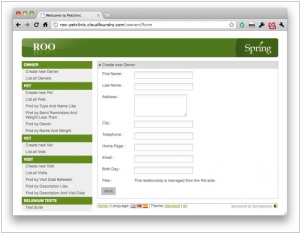
Open Source Cloud Application Platform that makes it faster and easier to build, test, deploy and scale applications, providing a choice of clouds, developer frameworks, and application services. It is an open source project and is available through a variety of private cloud distributions and public cloud instances.
19
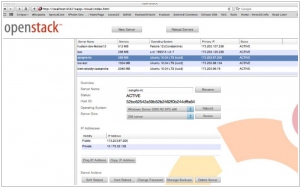
OpenStack is a global collaboration of developers and cloud computing technologists producing the ubiquitous open source cloud computing platform for public and private clouds. The project aims to deliver solutions for all types of clouds by being simple to implement, massively scalable, and feature rich. The technology consists of a series of interrelated projects delivering various components for a cloud infrastructure solution.
Cloud Foundry and OpenStack are both open-source cloud computing platforms, but they serve different purposes and focus on different layers of the cloud stack. Cloud Foundry is a platform-as-a-service (PaaS) solution that simplifies application deployment and management. It provides developers with a high-level abstraction layer, allowing them to focus on writing code while the platform handles infrastructure and scaling. Cloud Foundry supports multiple programming languages and frameworks and offers features like buildpacks, containerization, and service brokers for easy integration with external services. On the other hand, OpenStack is an infrastructure-as-a-service (IaaS) platform that provides a framework for building and managing private and public cloud environments. It offers a modular architecture that allows users to provision and manage virtual machines, networks, storage, and other infrastructure components. OpenStack provides a high degree of control and flexibility, allowing organizations to customize their cloud infrastructure to their specific needs.
See also: Top 10 Public Cloud Platforms
See also: Top 10 Public Cloud Platforms
Cloud Foundry vs OpenStack in our news:
2017. Cloud Foundry adds native Kubernetes support
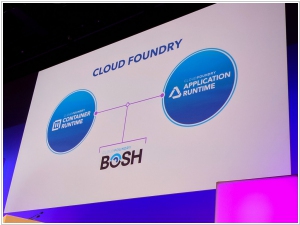
Cloud Foundry, the open-source platform as a service (PaaS) offering for enterprise, made an early commitment to Docker containers. However, with the introduction of Kubo, a tool donated to the project by Pivotal and Google last year, Cloud Foundry gained a new capability to rapidly deploy and manage a Kubernetes cluster. Kubernetes, an open-source container orchestration tool backed by Google and emerging as the industry standard for container management, is now an integral part of the Cloud Foundry platform under the new name "Cloud Foundry Container Runtime." The collaboration between Google, Pivotal, and Cloud Foundry in developing this integration comes as no surprise.
2016. Rackspace offers ready-to-use Openstack private clouds
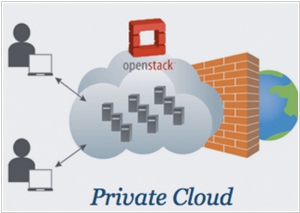
Rackspace has been a long-standing provider of enterprise solutions for managing private OpenStack deployments. However, until now, companies were required to build their own hardware and infrastructure. A significant development now allows enterprises seeking to transition to OpenStack for their private cloud deployments to rely on Rackspace for the complete process, from building and monitoring the infrastructure to managing the OpenStack clouds at every level, including the software stack. Rackspace's expert employees will oversee all aspects of the deployments and assist customers in smoothly transitioning to their new cloud environments. Customers availing this service can expect an impressive 99.99 percent uptime Service Level Agreement (SLA) from Rackspace, although it is important to note that events such as power failures in data centers are beyond the company's control. Rackspace is prepared to install these new private clouds in virtually any data center globally, and it has also partnered with Equinix to expedite and simplify deployments in the data centers operated by the latter.
2015. Google is joining OpenStack
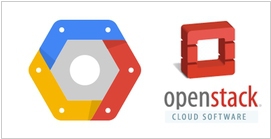
Google has recently become a corporate sponsor of the OpenStack Foundation, demonstrating its commitment to the open-source project. This sponsorship entails an annual contribution of $25,000. Google's focus within the project will revolve around Linux containers, as well as the integration of the Kubernetes container management tool, which was developed by Google, into OpenStack. Notable corporate sponsors of OpenStack include Alcatel-Lucent, Citrix, Comcast, Cray, GoDaddy, Fujitsu, Oracle, SAP, Nokia, and the Linux Foundation. Beyond the financial commitment, Google's involvement signifies a symbolic gesture due to its prior engagement with the project. The company has previously collaborated with OpenStack on various initiatives, such as the Murano application catalog and the Magnum container orchestration service. Google intends to contribute engineering resources to further support the project's advancement.
2014. VMware integrates its cloud management tools with OpenStack
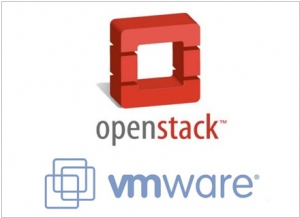
Virtualization giant VMware has announced the integration of its lineup of tools with the OpenStack open-source cloud framework. This new service is scheduled for release in the first half of 2015. With this integration, organizations that have an OpenStack cloud infrastructure in place will have the capability to manage it using VMware's tools through their IT operations staff. Additionally, organizations running data centers and equipment based on the VMware stack will be able to seamlessly synchronize them with other equipment running on OpenStack. It is worth noting that OpenStack was initially developed as an alternative to VMware's private cloud and Amazon's public cloud. VMware's Integrated OpenStack appears to challenge the idea held by OpenStack purists who prefer a private cloud built on multiple open-source components.
2012. Surprise! VMWare has joined OpenStack
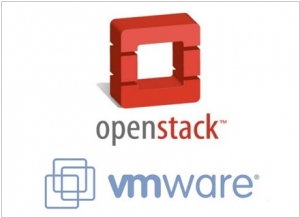
Recently we found out that the open cloud platform alliance OpenStack includes several members from EMC. It was a surprise, because EMC owns VMWare - the direct competitor of OpenStack. We thought that it was a little misunderstanding in the Swedish family EMC-VMWare. But this wasn't the last surprise in this story. In the end of the last week, VMWare personally became the "Gold member" in OpenStack. (Recall, OpenStack was founded two years ago in order to struggle against the dominance of Amazons's public cloud and VMWare's data-center cloud management systems). Together with VMWare two more giants: Intel and NEC joined OpenStack on Friday. So now, on the cloud platform market we have the confrontation: Amazon vs "Everyone else". You may think that the forces are not equal, but ... ***
2012. OpenStack - is like the Soviet Union. Who develops OpenStack?
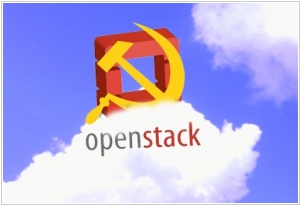
Last week, RackSpace has launched the open platform OpenStack in its cloud. And though HP has done the same a little earlier, but in HP Cloud OpenStack is running in beta mode, but in RackSpace Cloud - anyone already can start using OpenStack for business needs. So now all these debates what is more cool, Amazon Web Services or OpenStack will go into practical area. And the last theoretical debates took place shortly before the launch at the GiGaOm Structure conference. And at this conference, Chris Kemp, CEO of cloud provider Nebula (which, by the way, is OpenStack member) compared OpenStack with Soviet Union - "a collective farm ostensibly run for the good of its members, but where nothing is actually accomplished." Why Chris Kemp said that? Let's take a look, who develops OpenStack: ***
2012. OpenStack launches. CloudStack departs. Amazon adapts SAP. Azure rebrands
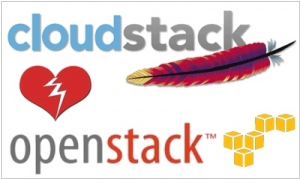
Here is the news digest from the leading cloud platforms. First of all, the open-source platform OpenStack (aka Linux for the clouds) which had been developed for two years by the alliance of IT giants (Rackspace, NASA, Citrix, Intel, AMD, Cisco, Dell, HP, IBM ...) - finally comes to production. Since May 1, it was adapted by RackSpace for its service Rackspace Cloud Files and last week HP launched the public beta of its HP Cloud platform, based on OpenStack. However, a week before the launch the trouble (common for open-source projects) occurred with OpenStack. Citrix, which has been one of the first participants in OpenStack, suddenly decided to grant its own cloud platform - CloudStack - to Apache Software Foundation. Thus, CloudStack not flowed into OpenStack but became a rival project. Citrix explained this decision by the slow OpenStack development and unwillingness of other parties to integrate with Amazon Web Services APIs. ***
2012. Amazon - gets closer to Windows, OpenStack - closer to Linux
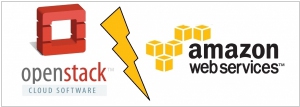
The situation on the cloud (IaaS) platform market more and more reminds us the history of the desktop operating systems (Windows and Linux). On the one hand - open and standard-based platform OpenStack. It's standards this week were supported by two more giants - IBM and Ericsson, that joined the OpenStack alliance. Before them the alliance included Rackspace, Citrix, Intel, AMD, Cisco, Dell, HP. On the other hand - proprietary but already very popular platform Amazon Web Services (AWS). AWS gained it's popularity as a simple and open platform which allows to restore Linux or Windows server and scale it depending on the load. It was relatively easy to move applications of AWS. But as Amazon adds new features to AWS, it lockes clients and partners more and more in its golden cage. ***
2011. SaaS vendors using third-party PaaS as their own

An interesting new trend is emerging: SaaS vendors start to use third-party PaaS services as platforms for their own clients and partners. Let's first consider the ordinary situation. For example, there was such SaaS provider as Salesforce. And it provided the online CRM system. The system was growing but the customers wanted more and more new features. Then Salesforce management thought: "we can't implement so many features, and it's not right to make the system too complicated. Let's better create a (PaaS) platform, and let our customers and partners create add-on apps and functions themselves. That's how Force.com appeared. And many others SaaS vendors headed the same way: Google, NetSuite, Intuit, Box.net ... But not all SaaS-providers are so mighty to create own PaaS platform. Or maybe creating own PaaS-platform - is not the smartest option. Why not use one of the existing PaaS-services, such as Force.com? ***
2011. HP and Dell support OpenStack
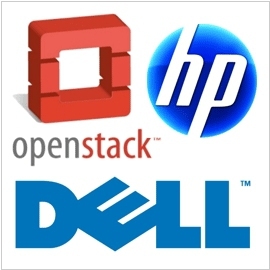
It appears that OpenStack, the open-source IaaS platform spearheaded by Rackspace, has truly emerged as the Linux equivalent of the Cloud Computing era. Both HP and Dell, the two major players in cloud hardware, have recently joined the OpenStack alliance. HP has joined in principle, while Dell has already become an active participant. Just yesterday, Dell introduced their solution for building private and public clouds called Dell OpenStack Cloud. The name itself indicates the software platform it is based on. It's worth noting that the OpenStack alliance includes other significant contributors such as chip manufacturers Intel and AMD, virtualization leader Citrix, networking giant Cisco, cloud management developers Cloudkick and Rightscale, and cloud providers Rackspace and Cloud.com. Each of these companies actively contributes to the development of OpenStack, ensuring seamless compatibility with hardware, networking equipment, and intermediary software. On the other side of the market, we have Oracle, IBM, VMWare, and Amazon, offering their proprietary cloud solutions. However, it will be quite challenging for them to compete against such a formidable alliance.


